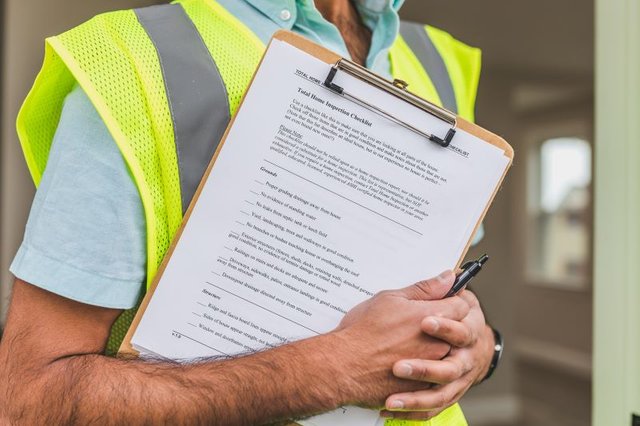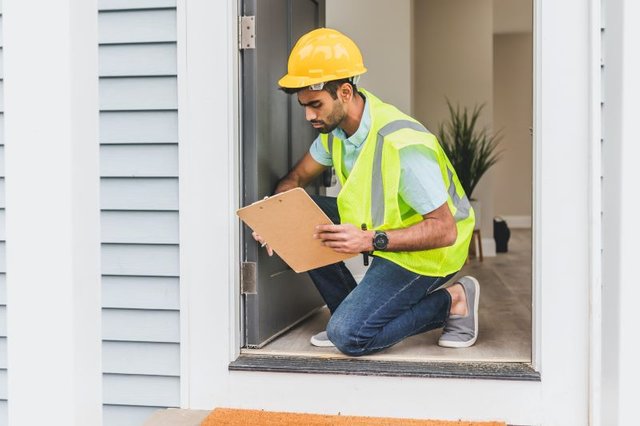
Property inspections are essential when you want to purchase a new home. It is a thorough examination of the condition of a home, both inside and out. The inspector will look for any major problems that could affect the home's value or make it unsafe to live in. Building inspections are vital for keeping abreast of the condition of your home and safeguarding your investment. Also, if you're buying a home, it's crucial to have a professional inspection done to ensure that there are no hidden issues that could cause problems down the road.
General Property Inspections
General property inspections are visual examinations of the physical structure and systems, from the roof to the foundation. Inspectors look for any problems and make a note of them. Inspections are often done before a home is put on the market or before buying or selling a home. General inspections typically take a few hours.
While it is not required by law to have a general inspection, it is highly recommended. Here are four benefits of having one:
• Helps identify potential problems: A trained inspector will know what to look for to identify any potential problems with the home. By catching these issues early, you can avoid more serious (and expensive) problems down the road.
• Gives you peace of mind: Once the inspection is complete, you'll have a better understanding of the condition of your home. This can help put your mind at ease and give you confidence in your decision to buy or sell the property.
• Helps you negotiate: If there are any problems found during the inspection, you'll have the leverage to deal with the seller on
Major Benefits for Building Inspections
Pest control is one of the essential benefits of having regular building inspections. A trained professional can identify potential pest problems and recommend the best course of treatment. Pests can cause damage to a property, and they can also be a health hazard. A pest inspection will identify any present pests and recommend treatments to get rid of them. This can save you money in the long run by preventing expensive damage to your home or business.
Building code compliance is one of the primary benefits of having regular inspections. You can avoid costly fines and repairs by ensuring that your property is up to code. In addition, regular property inspections can help you identify potential safety hazards before they become a problem.
Legal Considerations for Property Owners
If you're a property owner, it's important to be aware of the legal implications of having regular inspections. Depending on your jurisdiction, there may be certain regulations around how often properties must be inspected and what type of inspection is required. Failure to comply with these regulations can result in fines or other penalties.
Additionally, if there are any safety or code violations discovered during an inspection, you'll be responsible for addressing them promptly. If you don't, you could face further penalties. You can also avoid these legal problems by ensuring that your property is up to code and in compliance with all regulations.
Reducing Your Insurance Rates
If you have a home or other type of property, you're probably aware you need to ensure it. But did you know that having regular property inspections can actually help reduce your insurance rates? That's right - by ensuring that your property is in good condition, you can convince your insurer that it's less of a risk, and they'll be more likely to give you a better deal on your premiums.
Of course, you'll need to ensure that you keep up with the repairs and maintenance suggested by the inspector, but it's worth it in the long run. So if you're not already doing so, start scheduling inspections - it could save you a lot of money!
If you're thinking of selling your home, having inspections can do wonders for its resale value. By ensuring that your home is in top condition, you can be confident that potential buyers will be eager to pay a higher price. Not to mention, if any repairs or maintenance are needed, you'll have plenty of time to take care of them before putting your home on the market.
Scheduling Building Inspections
Scheduling a regular property inspection is one of the best ways to keep your home in top condition. Having a professional inspector check your home regularly allows you to catch small problems before they become big. This can save you time and money in the long run.
In addition, regular inspections can help you avoid hazards. If an inspector sees anything wrong with your home, they can recommend the appropriate repairs that can keep your family safe. Finally, regular building inspections can give you peace of mind. Knowing your home is in good condition can help you relax and enjoy your life. Schedule an inspection today!

What Does a Property Inspector Look For?
A property inspector looks for any potential problems with a property that could cause issues for the new homeowners. This includes things like water damage, structural problems, electrical issues, and more. By doing a thorough inspection of the property, the inspector can help to protect the new homeowners from any unexpected problems that could arise down the road. A property inspection can take anywhere from a few hours to a full day, depending on the size and condition of the property. inspectors will look at the condition of the home's structure, systems, and finishes, and check for any health and safety hazards.
As a home buyer, you may be wondering if you should be present for the property inspection. The answer is that it depends on your schedule and comfort level. If you can't be there, try to send someone who can represent you and take note of the inspector's findings. On the other hand, if you're comfortable with it, being present for the inspection can give you a better understanding of the home's condition and any potential problems that may need to be addressed.
Tips For Choosing a Property Inspector
When you're ready to buy a home, it's important to choose a qualified property inspector to help you make sure the home is in good condition. Here are some tips to help you choose the right inspector for the job:
• Get recommendations from friends or family who have recently purchased a home.
• Check out online reviews of local inspectors.
• Make sure the inspector is licensed and insured.
• Ask the inspector for a sample report so you can see what to expect.
• Discuss your expectations with the inspector before they begin the inspection.
You have your home inspected before you buy it. But what do you do with the report? Here are some tips:
• Read it carefully.
• Discuss any concerns with your real estate agent.
• If there are major problems, renegotiate the purchase price or ask the seller to make repairs.
• Get estimates from contractors to fix any problems.
• Make sure that any repairs are made before you close on the property.
All in all, building inspections are definitely worth the investment. You will have peace of mind knowing that your new home is up to code and free of any major defects. In addition, you will be able to negotiate with the seller for any repairs that need to be made before you finalize your home purchase.
You can read more about this topic on https://www.newsstoryarticles.com/.